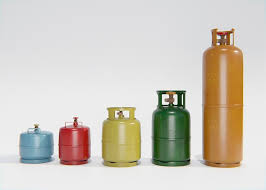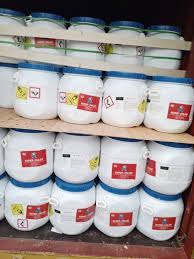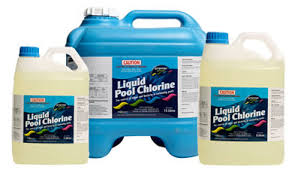![]()
If you’ve landed on this article page, you’re probably searching for a
good business idea—an idea that’s light on the pocket but heavy on
returns, promising both a fulfilling journey and potential profit.
|
How
To Start A Lucrative Chlorine Production and Supply Business In
Nigeria
Chlorine, with the scientific symbol Cl, is a chemical element
known for its yellow-green gas form. It is widely used in
various industries for its disinfectant properties, bleaching
capabilities, and as a raw material in the production of
numerous products.
In Nigeria, the demand for chlorine has been steadily increasing
due to the expanding water treatment sector, population growth,
and infrastructure development. The local production capacity
has been ramping up to meet this demand, supported by government
initiatives and investments in the chemical industry.
Additionally, Africa as a whole presents immense potential for
chlorine production and supply, driven by urbanization,
industrialization, and the need for clean water.
To succeed in this business, thorough market research,
understanding of local regulations, and adherence to
international standards are essential. Additionally, investing
in sustainable practices, optimizing production processes, and
maintaining strong distribution networks are critical factors
for long-term success in the chlorine production and supply
industry.
To ensure a sustainable Chlorine Production and Supply Business,
it is essential to adopt environmentally responsible practices,
adhere to safety standards, and maintain a reliable supply
chain.
Uses Of Chlorine In Nigeria
Chlorine, as a versatile chemical, finds numerous applications
in Nigeria and Africa. The uses of chlorine span across various
industries, making it an essential component in several
processes and products.
Water Treatment: Chlorine is widely used as a disinfectant in
water treatment facilities to kill harmful bacteria, viruses,
and parasites, ensuring safe drinking water for communities.
Swimming Pools and Spa Treatment: Chlorine-based chemicals are
employed to sanitize swimming pools and spas, preventing the
growth of bacteria and maintaining water quality.
Industrial Processes: Chlorine is utilized in industrial
processes such as chemical manufacturing, pulp and paper
production, textile bleaching, and pharmaceutical .
Sanitation and Cleaning: Chlorine-based products play a vital
role in maintaining hygiene and sanitation in healthcare
facilities, food processing industries, and household cleaning
applications.
Manufacturing: Chlorine is a key component in the production of
various products, including PVC (polyvinyl chloride), plastics,
solvents, and dyes.
Disinfection and Sterilization: Chlorine is used to disinfect
surfaces, equipment, and instruments in healthcare settings,
laboratories, and food processing facilities.
Wastewater Treatment: Chlorine-based chemicals are employed in
wastewater treatment plants to disinfect effluent water before
it is released back into the environment.
Agriculture and Food Processing: Chlorine is used in agriculture
for crop protection and as a disinfectant in food processing to
prevent contamination.
Textile and Paper Bleaching: Chlorine-based compounds are used
in the bleaching processes of textiles and paper production.
Pharmaceuticals: Chlorine is utilized in the manufacturing of
various pharmaceutical products, including antibiotics and
antiseptics.
Chlorine’s wide range of applications in Nigeria and Africa
underscores the importance of a robust Chlorine Production and
Supply Business to meet the growing demand in these industries.
To produce chlorine in Nigeria and Africa, several raw materials
are required. These raw materials serve as inputs in the
electrolysis process, where chlorine gas is generated. The key
raw materials used in chlorine production include:
Sodium chloride (NaCl): Commonly known as salt, sodium chloride
is the primary raw material used in chlorine production. It is
sourced from salt deposits, seawater, or salt lakes.
Water: High-quality water is essential for the electrolysis
process. It is typically sourced from freshwater supplies or
treated water sources.
Electricity: A significant raw material for chlorine production
is electricity. Electrolysis requires a direct current (DC)
electrical source to drive the chemical reactions involved in
chlorine production.
These raw materials are crucial for the electrolysis process,
where sodium chloride is broken down into chlorine gas (Cl2),
sodium hydroxide (NaOH), and hydrogen gas (H2). The chlorine gas
is then collected and further processed for storage and
distribution.
The Chlorine production and supply business in Nigeria and
Africa presents significant opportunities for economic growth
and development. The demand for chlorine is driven by its
diverse applications in various industries, including water
treatment, disinfection, pharmaceuticals, and agriculture. The
local and global markets for chlorine continue to expand,
offering potential for business expansion and export
opportunities.
Get our Practical Guide on How to Start Chlorine Production and Supply Business in Nigeria. In this comprehensive guide, we’ll walk you through all the essential steps you’ll need to take to start your own Chlorine Production and Supply Business, from conducting market research and choosing the right location, setting up operations, and attracting customers.
|







